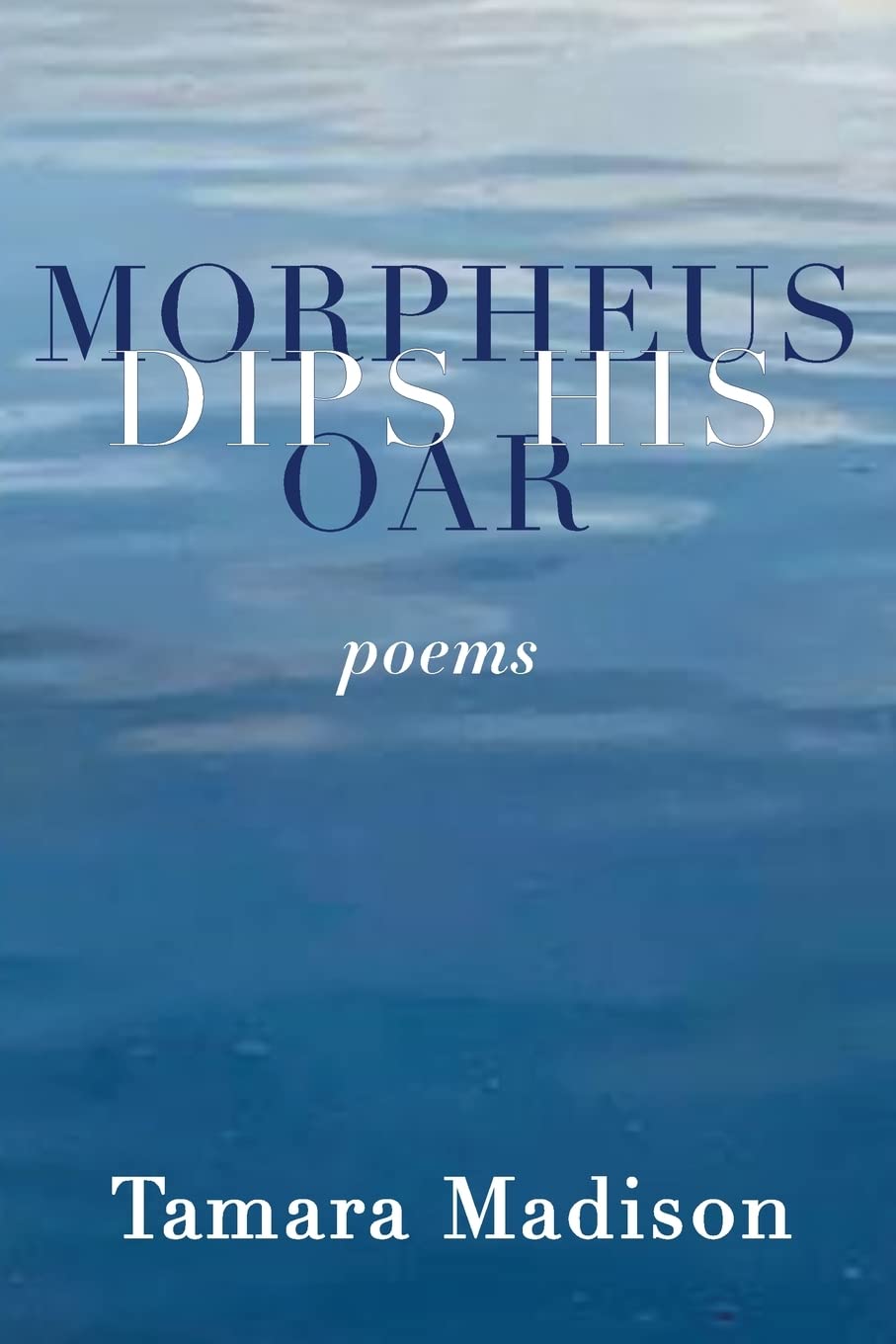I have always admired Tamara Madison’s poetry, and especially the way that she approaches death. One of the poems Madison is known for is “Drop Dead.” In it, she takes the epithet and turns it into a wish for her mother. She hopes that her mother will at some point simply drop dead rather than having to endure the indignity of dying slowly in a hospital. For Madison, death seems to be a fact rather than a terror, and so she is able to explore the idea differently from the ways I’ve seen others discuss it. In her newest collection, Morpheus Dips His Oar, she is able to look at the idea of passing away for multiple people in her family, and from multiple points of view, so that it becomes a discussion of family dynamics, a subject matter at which she also excels. Madison’s work here explores the idea of her death and the deaths of those she loves, but it is in no way morbid; instead, she is dealing with this inevitability and modeling her approach to death in the healthiest ways that she can, directly and without maudlin exaggeration that would exacerbate whatever pain could be associated with it.
Madison’s poetry does not only explore the idea of her death, but the deaths of those around her. In “Cold Morning,” she puts on her sister jacket who has passed away and thinks of her:
I put on my sister’s jacket;
her scent still dwells in the seams.
Again, I mourn not her death
but her life, the way
she cloistered her longings
within her faith (26)
Death is inevitable, so it is not to be mourned. What should be mourned and concentrated on is the way the people in her life live, and what they believe in while they are here.
My faith is in the chirp
of the phoebe, the vine’s
supple sinew . . .
My faith is in my sister’s jacket,
the weight of her still-warm love (26).
Her take on death here is not to allow it to overwhelm her. Instead, she allows her mind to be filled with real things that bring joy to her mind. Yes, she learns lessons from her sister’s passing. She dwells on it, but refuses to be destroyed by harmful and exaggerated emotions about it. Perhaps, the poem “Voyager” approaches the subject in a way that encapsulates Madison’s ideas the best. Here, she addresses her dead mother.
When you left this world,
you abandoned your body like a dress
tossed aside after a night of dancing.
. . .
You don’t have to call to me, Voyager.
I will join you in my time. They say
deep peace will guide you on your journey
into the sea of everything (32).
There is a deeply joyful approach to death here. It is not something to fear, but rather something that we should embrace. It is full of rich possibilities, and those we love call us to it. The truth is of course that we should embrace it. We might as well.
Because this work does not become melodramatically tragic, she is able to look at the ways death does actually affect her and her family and friends. She demonstrates, without directly discussing, how she was able to take on the role of her mother as matriarch. She is the one who is guiding the family as her mother once did. She is showing that there is a time and place for everyone, and it is not just natural, but important to prepare for the changing of these roles. She is demonstrating how to love and not be caught up in dangerous patterns of grief and loss. Madison’s work continues to be moving and important because she faces those things that others are afraid to face with directness and dignity.
*

